Tuesday 20th of September saw the first day of the Cool Logistics Conference held in Barcelona. The First session was opened by MC Kim Winter from Logistics Executive.
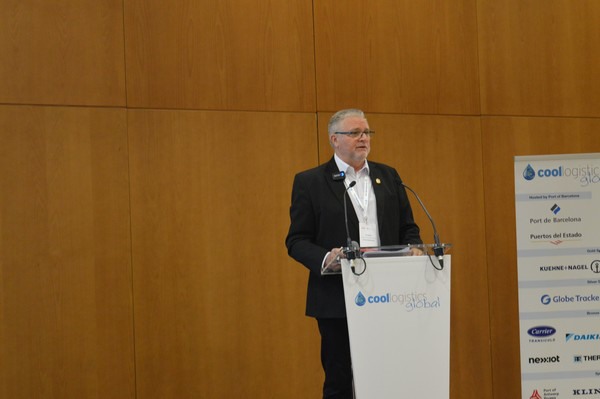
Kim Winter from Logistics Executive
Damià Calvet, President, Port of Barcelona gave delegates an overview on the port and coming expansion plans. He said the aim was to bring the port services closer for shippers and customers through private and public investment by developing new terminals and increasing the number of reefer plugs.
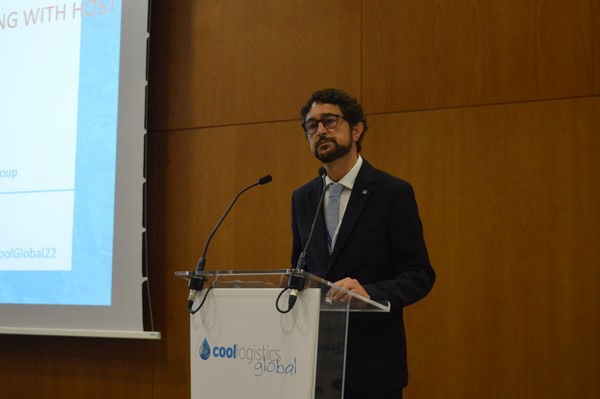
Damià Calvet, President, Port of Barcelona
The port supplies the markets in Barcelona and Madrid as well as Perpignan and Rungis with fresh produce and is a main logistical centre to Southern Europe and North Africa.
Martin Dixon, Head of Research Products, Drewry and Director, Drewry Group and Michel Looten, Director Maritime, Seabury Consulting, part of Accenture, shared the latest market intelligence on global perishables trade and the reefer freight outlook.
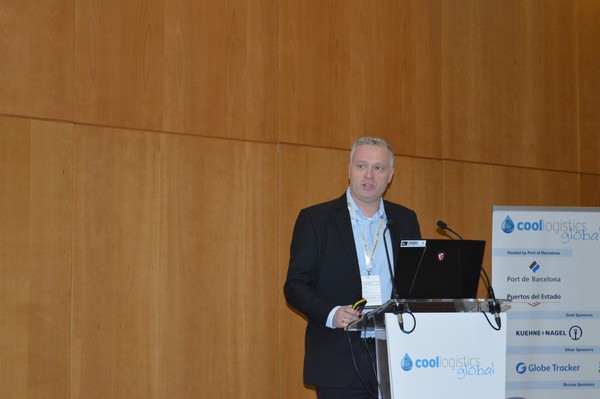
Michel Looten, Director Maritime, Seabury Consulting
Michel Looten said that since the Covid outbreak the demand for dry cargo containers went like a rocket, but this will decrease long term. The container trade for fresh foods is seasonal and makes the management of reefer flows more challenging. The growth in the reefer trade was less than in dry, in fact reefer trade saw a 2% decline while dry trade increased by 2%.
Fresh and frozen trade were both down, the reduction in frozen was mainly due to the Chinese recovery from swine flu and substantially less import of of frozen pork.
For fresh foods 2022 vs 2021 South America saw a decline of -6%, Central America -2%, North East Asia -5%.
The Russian invasion of Ukraine has also influenced the market, in April and May 2022 there was a substantial drop in imports to the Russian market. This increased in June when supplies came from other sources such as Turkey and China.
Global ocean trade forecast has been adjusted down particularly driven by reefer decline and may have to be adjusted more due to inflation and decrease in consumer demand.
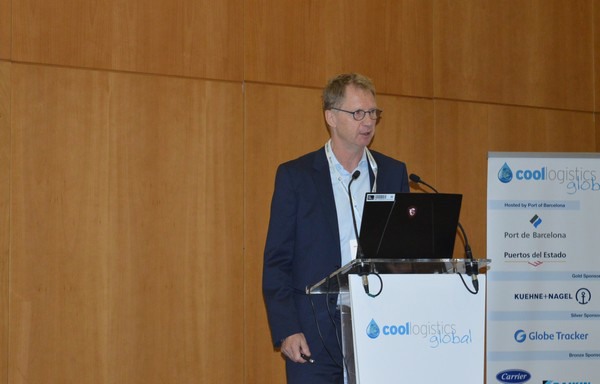
Martin Dixon, Head of Research Products, Drewry and Director, Drewry Group
Martin Dixon agreed that the last update in July may be downgraded due to the global economy.
Seaborne reefer trade prior to the pandemic saw a 3% growth and did not contract in 2020, but this years growth forecast is just 1%. Specialist reefer fleet is very old, with a large percentage of containers reaching the 30 year mark so he expects the number to decline due to scrapping and capacity to shrink by 2%. There has been a record number of reefers in production, but due to scrapping growth will be static.
The imbalance of containers in the production areas still has a big deficit, but this should improve. Reefer freight rates will decline but slower than dry container rates and will not go back to pre-pandemic levels.
Business Outlook: Global Perishables Trades, Reefer & Cold Chain
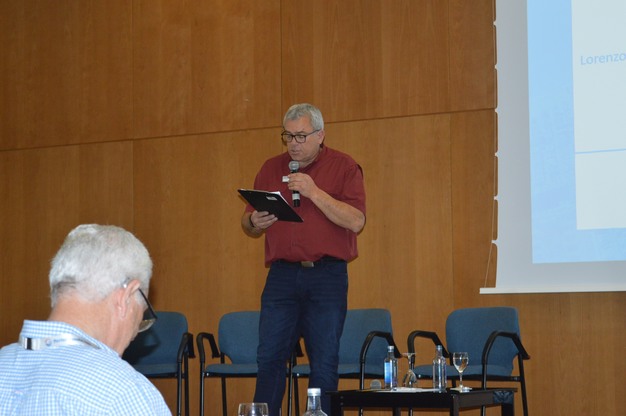
Andy Connell, Lead Technical Consultant, A-bar-C Services moderated this session and said that 4 or 5 years ago airfreight was seen as plan B, or as a means to get fruit into the market early. A shift started during Covid and is becoming increasingly important due to shipping delays and a need to have fruit on the market at the right time. He also spoke about how important the last mile was for reducing wastage, the grower/ exporter does everything right but still takes the hit. He looked at the supply chain and found that the damage is done in the last mile on the way to the DCs. This, he said is the uncomfortable truth about the last mile. Retailers and receivers are not happy about temperature monitors being used, but need to be faced with facts and data about where the damage is being done.
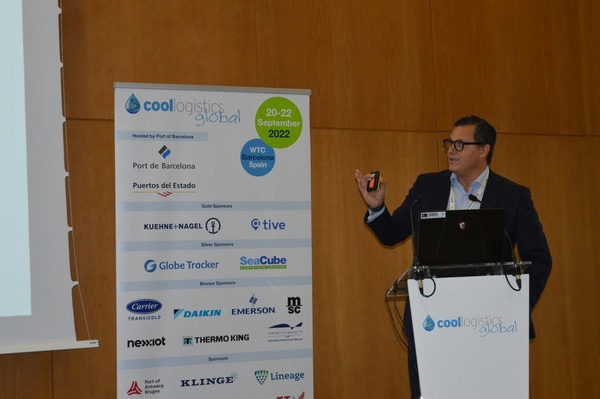
Lorenzo Donato, Area General Manager Southern Europe & Balkans, Etihad Cargo gave an overview of their services with connections from Abu Dhabi to Asia, North America, India and the |Middle East amongst others. The company will launch their Fresh Hub in Abu Dhabi at the end of the month.
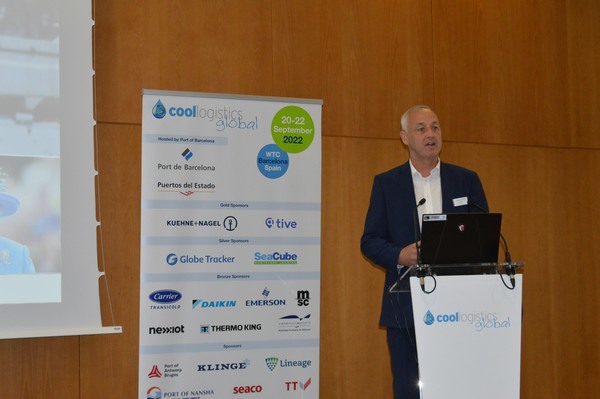
Robert Mant, Vice President Global Reefer Sales and Business Development, Kuehne+Nagel spoke about the challenges in the global perishables trade where there is -7% in volumes from South America to Europe due to the Russian war and -13% from China into other Asian countries.
Congestion at ports is still a major issue: there are a few but not consistent signs of improvement. In June only 33% vessels were on schedule and on average there is a 6 day delay.
He posed some solutions such as understanding your markets, reviewing sourcing options, looking at shelf life and quality and working with reliable partners.
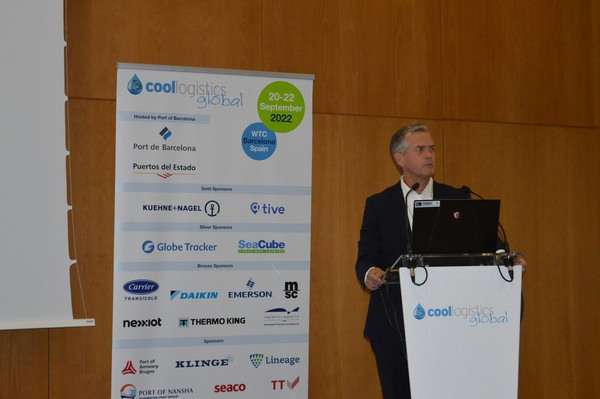
Gregory Tuthill, Chief Commercial Officer, SeaCube Containers said that although the industry still faces headwinds, the trade has held up well during the challenges of the last 18 months through lockdowns, interest rate hikes the Russian war, congestions and disruptions.
Cool Global Shippers Forum: Challenges and opportunities from production to consumption
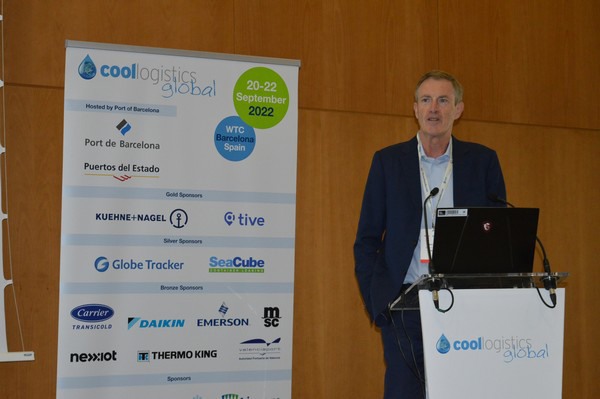
Marc Evrard, Commercial Director, BFV Belgische Fruitveiling highlighted the increased costs faced by growers and exporters during and post Covid. During Covid, growers had to invest a lot of money to enable them to continue to operate, such as more packing lines to enable social distancing which in some cases doubled costs. In the last 6-7 months there have also been substantial increase in production costs, this together with Brexit which increased the costs for more documentation and the queues at ports have all taken a toll.
The Ukraine war also disrupted trade channels when borders were suddenly closed and new routes to markets or even new markets had to be found.
Changes in European legislation on the use of fungicides are also putting more pressure on growers. The huge increase in shipping costs while reliability has gone down adds yet more pressure.
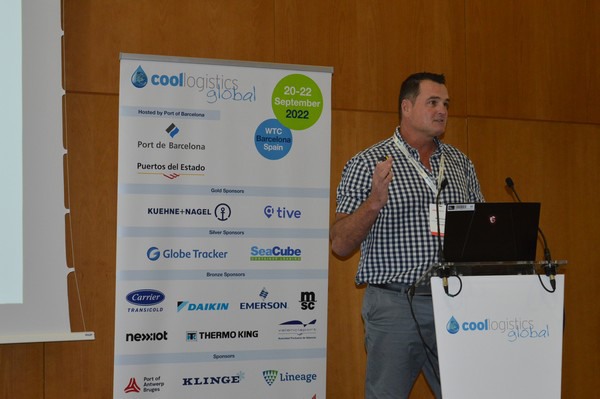
Mitchell Brooke, Logistics Development Manager at Citrus Growers Association of Southern Africa said that South Africa has had a very tough citrus exporting season, this was not unforeseen. The port situation in the country is complex, and they have the worst port operator on the globe and the three worst performing container ports on the globe. Ships have sat outside Cape Town for 21 days which according to Mitchell is catastrophic. The citrus production in South Africa is set to increase 160, million cartons this season to 250-260 million cartons in 2025 so big improvements must be made. At the moments farmers set the fruit on truck at the farm gate and no more control over what happens to them. There needs to better management of the cold chain and the industry is now lobbying for increased port productivity and capacity. There must also be more collaboration of export companies to explore the supply chain.
Tuesday's events were rounded off with a networking reception and gala dinner.
